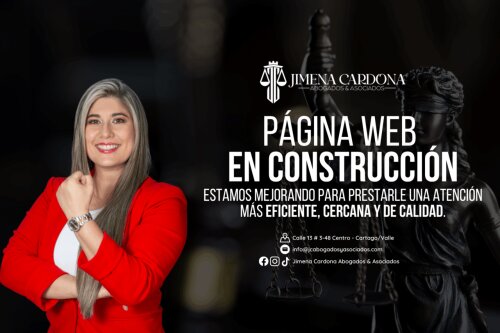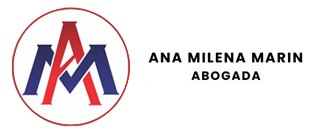Best Juvenile Law Lawyers in Cartago
Share your needs with us, get contacted by law firms.
Free. Takes 2 min.
List of the best lawyers in Cartago, Colombia
1. About Juvenile Law in Cartago, Colombia
In Cartago, Colombia, Juvenile Law centers on protecting the rights of children and adolescents under the national framework established for minors. The core tool is the Código de la Niñez y la Adolescencia, or Law 1098 of 2006, which sets out protections, responsibilities, and procedures for minors in civil, family and criminal matters. Local agencies such as the Instituto Colombiano de Bienestar Familiar (ICBF) coordinate with municipal authorities to safeguard rights and coordinate services.
Practically, this means that a minor in Cartago may be governed by protective measures, family support programs, education and health obligations, and, in some cases, restorative or alternatives to detention when a minor is in trouble with the law. The system emphasizes due process for minors and involvement of families and guardians in decision making. For residents of Cartago, these processes are carried out through national laws interpreted by local courts and governed by national agencies like ICBF and the Fiscalía General de la Nación.
Key concepts you should know include: protective measures for at-risk youths, guardianship and custody procedures, and the separate considerations given to adolescents in conflict with the law under the Sistema de Responsabilidad Penal para las Adolescentes (SRPA). These principles apply in Cartago just as they do across Colombia, with local actors implementing national norms.
Fuente: ICBF and Fiscalía General de la Nación provide official guidance on how these protections work in practice in municipalities like Cartago. ICBF | Fiscalía General de la Nación
2. Why You May Need a Lawyer
These are concrete, real-world scenarios in Cartago where a juvenile law solicitor can make a crucial difference. Each involves specific processes, rights and timelines that a lawyer can navigate on your behalf.
- A minor is accused of a crime in Cartago and enters the SRPA process. An attorney defends procedural rights, ensures counts and evidence are handled properly, and explains restorative options.
- Child protective services from ICBF place protective measures on a family in Cartago due to concerns about abuse or neglect. A lawyer helps challenge or modify those measures and coordinates with social workers.
- A parent seeks custody or guardianship changes after a separation. A family law solicitor guides guardianship applications, visits, and potential changes to the minor's best interests assessment.
- A student faces school related disciplinary actions that may trigger legal rights or reporting obligations. A lawyer can ensure due process in disciplinary hearings and protect the minor’s rights.
- A minor is subject to a judicial process for restorative justice or alternative sanctions. An attorney helps discuss suitable programs and monitors compliance with agreed terms.
- The family needs help understanding rights to counsel during hearings and whether a public defender can be appointed if the family cannot afford private counsel.
In each scenario, a Juvenile Law attorney provides guidance in plain terms, coordinates with ICBF and the Fiscalía, and ensures actions comply with Colombia’s child protection standards in Cartago. Engaging legal counsel early often helps avoid delays and protects future rights.
Fuente: ICBF and Fiscalía General de la Nación outline how these processes operate in Cartago and other municipalities. ICBF | Fiscalía General de la Nación
3. Local Laws Overview
The juvenile law framework in Cartago rests on national statutes and constitutional guarantees. Below are the primary laws and instruments that directly shape how minors are protected and treated in Cartago’s courts and social services system.
Constitución Política de Colombia (1991) guarantees rights and protections for children and adolescents and obligates the state to provide special measures to safeguard their development, health, education and legal due process. This constitutional base informs all juvenile proceedings in Cartago and nationwide. Constitución Política de Colombia - Normas
Constitutional framework emphasizes the priority protection of rights of niñas, niños y adolescentes in all state actions.
Fuente: Constitución Política de Colombia Constitución Política - Secretaría del Senado
Ley 1098 de 2006 - Código de la Niñez y la Adolescencia (CNA). Define derechos, procedimientos y medidas de protección para menores, establece el marco para el sistema de protección, y regula la responsabilidad penal de adolescentes en el marco del SRPA. Esta ley es la piedra angular para casos de familia, protección y justicia juvenil en Cartago. ICBF - CNA
Nueva jurisprudencia y reglamentaciones han enfatizado el uso de medidas no privativas de libertad para adolescentes y mayores oportunidades de rehabilitación.
Fuente: Ley 1098 de 2006 y reglamentaciones asociadas ICBF | Fiscalía General de la Nación
Ley 75 de 1968 - Creación del Instituto Colombiano de Bienestar Familiar (ICBF). Establece la responsabilidad del estado de proteger a la infancia y coordina servicios sociales, educación y protección para menores en todo el país, incluido Cartago. Esta ley sirve como base institucional para las acciones de protección en la infancia. ICBF
Notas sobre implementación: Cartago depende de la coordinación entre el ICBF regional, la Alcaldía y los jueces de familia para asegurar que estas normas se apliquen localmente. Actualizaciones y guías operativas se publican periódicamente por las autoridades competentes.
Fuentes oficiales: ICBF, Fiscalía ICBF | Fiscalía General de la Nación4. Frequently Asked Questions
What is the CNA and how does it protect minors in Cartago?
The CNA is the Código de la Niñez y la Adolescencia. It protects civil, family and educational rights of minors and defines protective measures and procedures. It also covers the treatment of adolescents in conflict with the law under restorative approaches.
Tip: A juvenile law attorney can translate CNA provisions into practical steps for your case in Cartago.
How do I start a juvenile case in Cartago if my child was accused?
Contact a local abogado defensor de menores to ensure due process. The attorney coordinates with the Fiscalía and ICBF, and guides you through the initial complaint, evidence, and court appearances.
When does a minor need a lawyer in a juvenile case?
Any time a minor faces loss of liberty, protective measures, or family court decisions, a lawyer is advisable. If the family cannot afford counsel, a public defender can be appointed.
Where can I find a Juvenile Law attorney in Cartago?
Seek referrals through the local Bar Association, ICBF offices, or the Fiscalía. Verify the attorney's experience with children, family, and criminal matters involving minors in Valle del Cauca.
Why might a protective measure be placed on a family in Cartago?
Protective measures are used when there is risk to a child or adolescent. They aim to safeguard rights while addressing underlying problems such as family instability, abuse, or neglect.
Can a minor be detained in Cartago and for how long?
Adolescents can be subject to certain safeguards under SRPA in exceptional circumstances. The aim is to use non-custodial measures when possible and to ensure timely judicial review.
Should I hire a private lawyer or use a public defender for my child?
If the family can pay, a private attorney may offer more tailored guidance. If not, a public defender can provide representation, ensuring the minor’s rights are protected.
Do I need to pay for a Juvenile Law lawyer in Cartago?
Private counsel fees vary by experience and case complexity. Public defenders are funded by the state if the family cannot afford representation.
Is the right to counsel guaranteed for minors in hearings?
Yes. Colombia ensures the right to a legal representative and to due process for minors in all judicial proceedings, including hearings about protective measures and juvenile justice matters.
What documents are needed to hire a juvenile lawyer in Cartago?
Bring personal identification documents for the minor and parents, any court notices, social service reports, and prior custody or guardianship documents. Your lawyer will provide a tailored checklist.
How long do juvenile investigations typically take in Colombia?
Duration varies by case type and complexity. Family-related matters may resolve within weeks, while some protective or criminal proceedings extend over months.
What is the difference between protective measures and restorative justice?
Protective measures aim to safeguard the minor while addressing risk. Restorative justice seeks to repair harm through agreements with involved parties, when appropriate for the minor.
Can guardianship changes affect custody of a minor in Cartago?
Yes. Courts review the minor’s best interests when guardianship or custody arrangements change. A lawyer can help prepare evidence and present a strong case.
5. Additional Resources
Access to authoritative guidance and official services is essential. Below are trusted organizations with clear roles in protecting and supporting Colombian minors.
- ICBF - Instituto Colombiano de Bienestar Familiar - National agency responsible for child protection, family welfare programs, and coordination with local municipalities including Cartago. ICBF
- Fiscalía General de la Nación - Public prosecutor and judicial authority handling crime investigations, including juvenile cases, with procedures aligned to the CNA. Fiscalía
- Defensoría del Pueblo - National human rights institution that monitors and defends the rights of children and adolescents, and can assist with complaints about authorities or services. Defensoría
6. Next Steps
- Define the issue clearly and collect all relevant documents (IDs, court notices, social reports) within 1 week.
- Search for a Juvenile Law attorney with experience in Cartago and Valle del Cauca; request at least 3 references within 2 weeks.
- Schedule initial consultations; prepare specific questions about rights, timelines, and costs within 1 week of identifying candidates.
- Verify credentials, including bar status and any disciplinary history; confirm familiarity with CNA, SRPA, and local procedures within 1 week.
- Discuss strategy and fees; obtain a written engagement letter detailing scope, costs, and expected timelines within 1 week after the consultation.
- Submit all necessary documents to your attorney and the relevant authorities; track progress with a shared calendar for hearings and deadlines within 2 weeks.
- Monitor case progress and adjust strategy as needed; maintain regular contact with your lawyer through updates every 2-3 weeks until resolution.
Lawzana helps you find the best lawyers and law firms in Cartago through a curated and pre-screened list of qualified legal professionals. Our platform offers rankings and detailed profiles of attorneys and law firms, allowing you to compare based on practice areas, including Juvenile Law, experience, and client feedback.
Each profile includes a description of the firm's areas of practice, client reviews, team members and partners, year of establishment, spoken languages, office locations, contact information, social media presence, and any published articles or resources. Most firms on our platform speak English and are experienced in both local and international legal matters.
Get a quote from top-rated law firms in Cartago, Colombia — quickly, securely, and without unnecessary hassle.
Disclaimer:
The information provided on this page is for general informational purposes only and does not constitute legal advice. While we strive to ensure the accuracy and relevance of the content, legal information may change over time, and interpretations of the law can vary. You should always consult with a qualified legal professional for advice specific to your situation.
We disclaim all liability for actions taken or not taken based on the content of this page. If you believe any information is incorrect or outdated, please contact us, and we will review and update it where appropriate.









